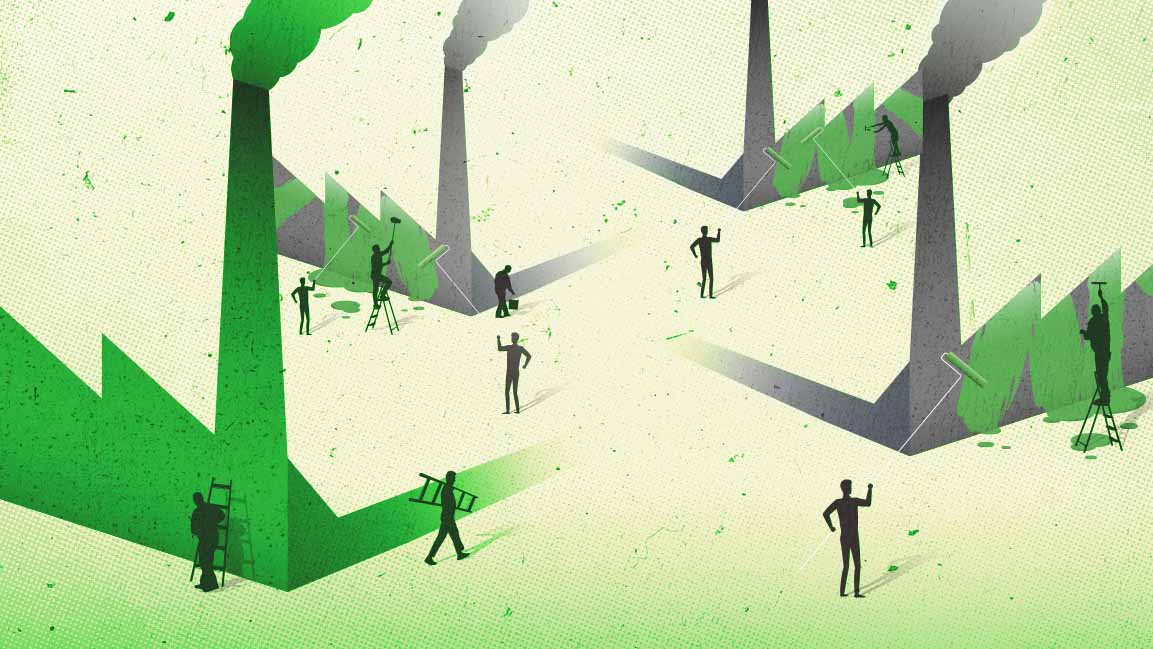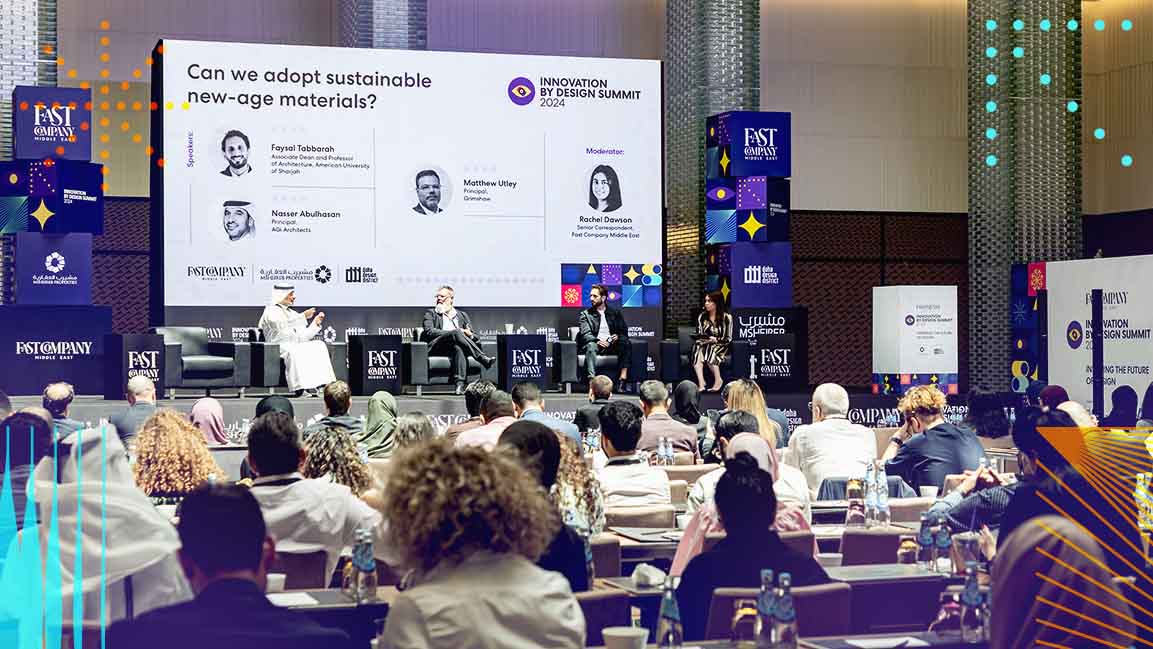- | 9:00 am
Will COP28 be a turning point for the transition to clean energy?
Phasing out of fossil fuels and carbon emissions are expected to top the agenda at the summit

As COP28 begins, the most important UN Climate Change Conference since governments adopted the Paris Agreement in 2015, all eyes are on the energy sector. Will an energy transition package be at this year’s COP in Dubai?
The Paris Agreement mandated inventory of global progress on climate action is set to conclude in Dubai, but the global stocktake has already revealed that countries are not on track to meet the goal of limiting global warming to 1.5°C.
In this context, COP28 presents a significant opportunity for governments to construct a credible deal to fill the gaps in implementing the Paris Agreement that established the 1.5°C ceiling with rapid action.
Greenhouse gas emissions from burning fossil fuels are the biggest cause of climate change.
The COP28 president, Sultan Al Jaber, opened the conference yesterday by urging countries and fossil fuel companies to work together to meet global climate goals.
Earlier, the presidency of the COP28 climate summit urged governments to triple renewable energy capacity by 2030 to stop global warming from exceeding 1.5°C.
Renewable energy capacity needs “to reach more than 11,000 GW” by 2030, the UAE’s COP28 presidency, the International Renewable Energy Agency (IRENA), and the Global Renewables Alliance said in a joint report recently.
Most major economies are already on board to pursue efforts to triple global renewable energy capacity by 2030.
However, striking a deal among the nearly 200 countries that attend COP28 meetings will take work. European nations and climate-vulnerable states say a renewable energy deal at COP28 must be paired with a commitment to phase out CO2-emitting fossil fuels — a pledge that has faced resistance from fossil fuel-reliant economies.
Earlier this week, OPEC Secretary General Haitham Al Ghais accused the International Energy Agency (IEA) of vilifying the oil and gas industry, referring to a note published by the energy watchdog that said the fossil fuel industry was facing a “moment of truth” where producers had to choose between deepening the climate crisis or shifting to clean energy.
OPEC, which will be at the climate talks, and the IEA have repeatedly clashed over long-term oil demand prospects and investment in new hydrocarbon supplies in recent years.
“To solve the climate challenge, we need a more collaborative approach. That is why the COP28 President is advocating for ‘actionism,’ which capitalizes on business and philanthropy’s dynamic capabilities and resources,” Badr Jafar, COP28 Special Representative for Business and Philanthropy, said.
The COP28 Business and Philanthropy Climate Forum led by Jafar will convene 1,000 leaders across these sectors. It is about “moving beyond just talk” to co-create solutions and drive real action.
“It’s clear that the private sector has a pivotal role in the global climate conversation, working alongside state leaders to fast-track energy transition, revamp climate finance, and focus on people and nature. This inclusivity is crucial for meaningful and sustained climate action,” adds Jafar.
THE ENERGY TRANSITION
Sultan Al Jaber, COP28 President Designate, has endorsed a strategy entailing a gradual “phase down” of “unabated” fossil fuels rather than an outright cessation. Al Jaber said he has been rallying support from companies for COP28 pledges aimed at reducing emissions from oil and gas operations.
Conversely, the European Union is anticipated to advocate for an unequivocal “phase-out.” But where we need to phase them “down” or phase them “out” is expected to cause fierce debate at the summit.
Earlier this month, UN Secretary-General Antonio Guterres, talking about what he thinks the response to the stocktake should be, said that “we need a clear and credible commitment to phase out fossil fuels on a time frame that aligns with the 1.5-degree limit.
Critics underscore the inherent uncertainties associated with the scalability and efficacy of large-scale emissions capture technologies. They contend that relying solely on emission capture is not enough and introduces considerable risks and potential loopholes in effectively addressing the challenges of continued fossil fuel utilization.
Meanwhile, as per the IEA, in 2022, the aviation sector contributed to 2% of worldwide energy-related CO2 emissions, experiencing a more rapid growth in recent decades than rail, road, or shipping. With the resurgence of international travel demand after the COVID-19 pandemic, the emissions from aviation are only likely to increase.
According to Dave Jones, Global Insights Lead at Ember, an independent energy think tank, there is a compelling need to act in light of the IEA’s projection of coal, oil, and gas peaks this decade. To meet the 1.5-degree target, Jones says, “Substantial and rapid CO2 cuts are imperative.”
“Renewables and energy efficiency are two components or actions we must take as a world as they give CO2 reductions.” Despite the grim realities he says the prevailing trajectory is well over toward 2°C. Yesterday, in his opening remarks Al Jaber, said 1.5°C is within reach.
Jones, however, highlights the historical lack of preparedness in climate action. “The task ahead of us would’ve been much easier if we had started 5, 10 or 20 years ago.” Yet, Jones is hopeful the role renewables will play in the energy mix and eventual phasing out of fossil fuels.
According to a report by Ember, tripling renewables and doubling efficiency will deliver 85% of the cuts in unabated fossil fuels required by 2030.
“Countries need to plan for how much to invest in their grid, how much to invest in flexibility, how many car chargers to build and so on,” says Jones, adding a need for mechanisms to support emerging countries in accessing affordable funding for their clean energy initiatives.
“It is not too late,” but the need of the hour for COP is a dedicated focus, and targeted investment to navigate the complexities of the energy transition.
Meanwhile, speaking on the sidelines of the Dubai Future Forum, Grzegorz Ombach, Head of Disruptive Research and Technology at Airbus, emphasized the imperative of making the industry sustainable.
“To attain net-zero emissions by 2050, the aerospace and aviation industry must undergo both incremental and radical changes,” says Dr. Omach. But the road to get there is marred with complexities. “There is no magic wand [to the energy transition]; instead, achieving sustainability involves a multitude of technological advancements,” he adds.
Considering the forecasted increase in air travel and the doubling of airplanes in the next two decades, Dr. Ombach stresses that the industry must persistently work on innovations to mitigate the industry’s environmental impact.
TRANSPARENCY, ACCOUNTABILITY AND COOPERATION
When we think about the companies responsible for carbon emissions, we tend to focus on the oil and gas companies of the world. But every company has a carbon footprint.
A recent BCG report found that although several private-sector enterprises have made ambitious targets, only 14% of companies reduced carbon emissions in line with ambitions over the past five years.
Daniel Blume, Corporate Governance Head and Senior Policy Analyst at OECD, who spoke at Future Forum, refers to a new chapter of corporate governance, which emphasizes the responsibility of the boards of directors to understand how businesses must prepare for what’s coming.
“There’s a real role to take ownership when they own a company; the revenues they get from that are very important to seek public sector objectives, but they need to adjust for what’s coming in the next 20-30 years,” says Blume.
One way this can be addressed is diversity. “It’s not just about more women on the board but people from different backgrounds, skills, and ages. He adds that diversity is important for companies to think differently and avoid groupthink when targeting sustainability goals,” he adds.
When envisioning the future, Khalfan Belhoul, CEO of Dubai Future Foundation, looking ahead to 2071, acknowledges how technology can solve problems facing humanity.
He emphasizes how Dubai is well positioned to take the lead on bringing together diverse communities and the best of the business and technology to lead future-forward talks that involve envisioning a better planet for all.
“Dubai is well positioned as an ideal hub for global cooperation. The city boasts an agile government, ready to embrace futuristic technologies and initiatives,” he says.
Belhoul’s vision centers on utilizing technology for sustainable and innovative solutions to mitigate climate change.
All agree that COP28 has an opportunity to yield transformational agreements centered on phasing out fossil fuels and accelerating toward a new energy mode.
Rapidly scaling up renewables and energy efficiency will require serious investment. IRENA estimates that global clean energy investment needs to quadruple to around $5 trillion a year on average between 2023 and 2030.
A key focus at the summit will be on climate finance, drumming up support for a financial framework to get more money into green investments, with the intention of bridging the gap between the developed and developing world.
This is an area where progress is desperately needed. According to reports, the UAE is expected to announce deals at COP28 and fund focused on climate finance, which will be backed by other countries.
The truth is that now the negotiations need to overcome the barriers, be more focused on fine points of execution, and construct effective roadmaps for implementation. The leaders gathered in Dubai in the next 12 days, have a lot to do.








































